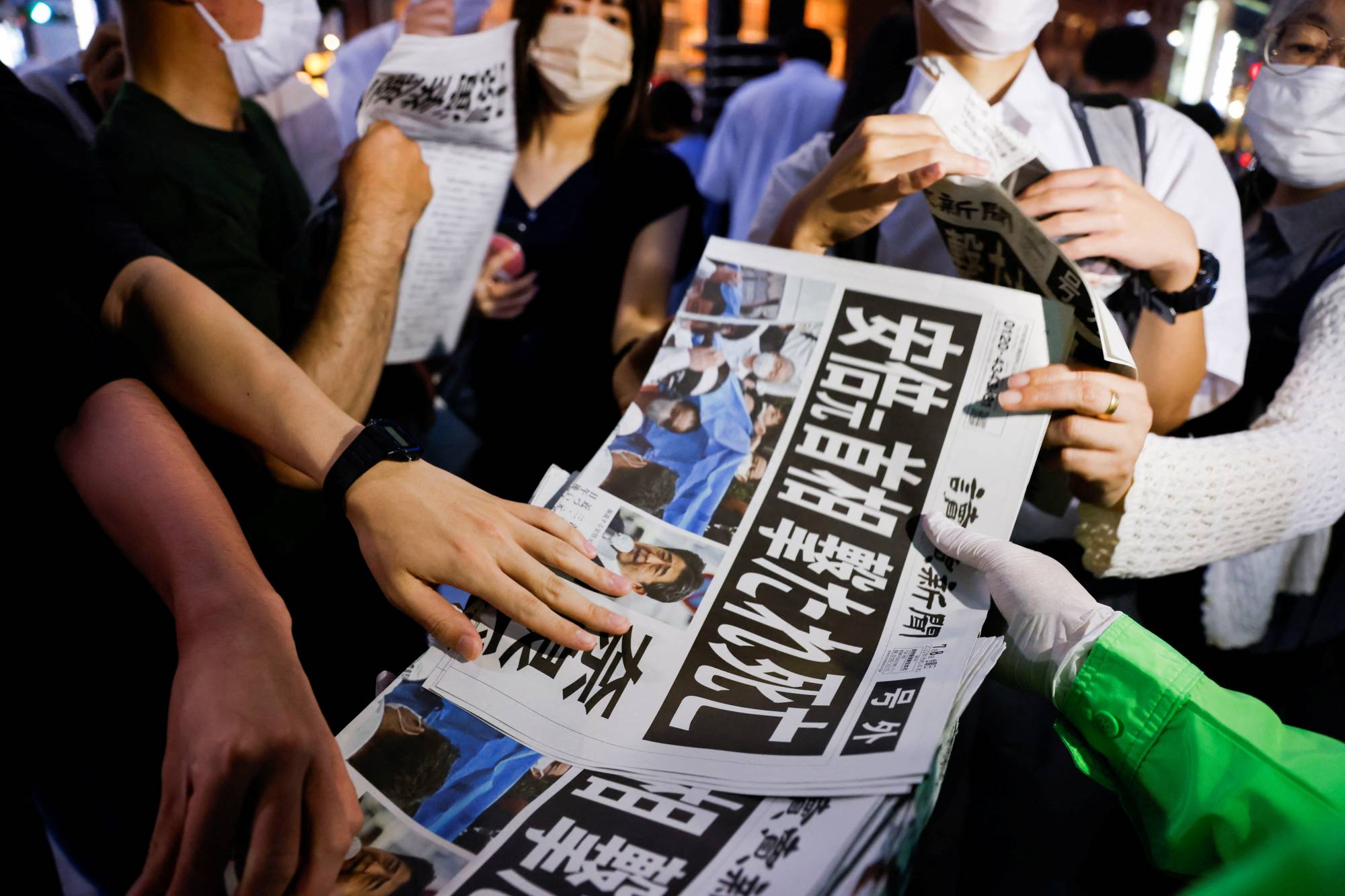Immediately after former Prime Minister Shinzo Abe was gunned down on Friday morning while stumping in the city of Nara, Japanese media outlets rose to the occasion and provided up-to-the-minute news on the shocking incident throughout the day.
Yet a peculiarity remains. While much of the Western press has described the death of Japan’s longest-serving prime minister as an "assassination," all of Japan’s major dailies ran identical headlines on their front pages on Saturday: “Former PM Abe dies after being shot.” Broadcasters such as NHK and other TV stations have done the same, seemingly avoiding the word "assassination."
Describing the murder of Abe as a "death" may not be inaccurate, but it does not clarify whether his passing was caused by a premeditated attack, an accidental shooting or even collateral damage from a shooting incident.


















With your current subscription plan you can comment on stories. However, before writing your first comment, please create a display name in the Profile section of your subscriber account page.